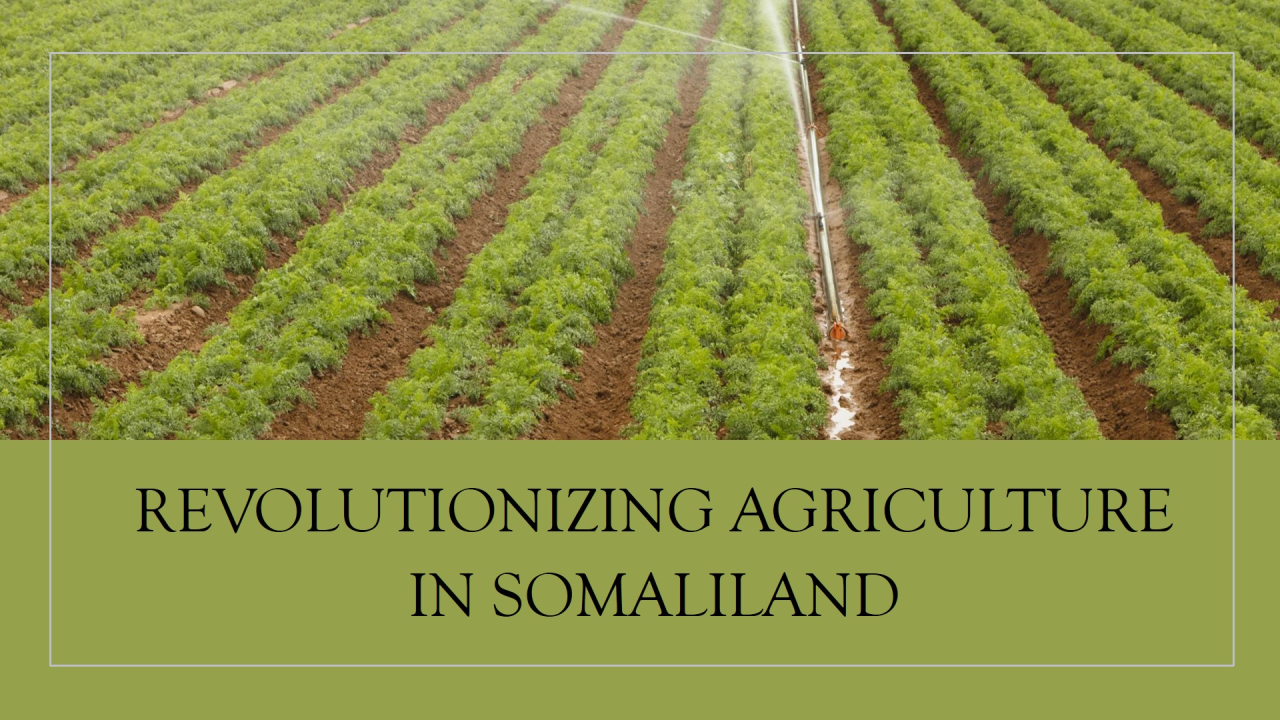Small Businesses and Tech Startups in Developing Countries: The Somaliland Case
In the modern economic landscape, small businesses and innovative technology startups are recognized as pivotal engines of economic growth, particularly in developing countries. These entities not only drive economic diversification but also foster job creation, innovation, and resilience in the face of global economic challenges. Somaliland, well known, self-declared state in the Horn of Africa, exemplifies how these businesses can catalyze development and contribute to a country’s progress despite facing significant geopolitical and economic obstacles.
Economic Diversification and Growth

One of the most critical contributions of small businesses and startups in Somaliland is economic diversification. Unlike large enterprises, which often dominate specific sectors, small businesses span a broad range of industries, from agriculture and retail to services and technology. This diversification mitigates risks associated with over-reliance on a single sector and promotes a more balanced and resilient economy.
In Somaliland, the agricultural sector, including livestock, traditionally dominated the economy. However, the rise of small businesses in sectors such as telecommunications, renewable energy, and services has broadened the economic base. For instance, technology startups focusing on mobile money and financial technology (fintech) have revolutionized financial inclusion, allowing more people to participate in the formal economy. This shift not only enhances economic stability but also fosters sustainable growth by creating new revenue streams and opportunities.
Job Creation and Employment

Job creation is another significant benefit of small businesses and startups. In developing countries like Somaliland, where unemployment rates are high, these enterprises play a crucial role in absorbing the labor force. Small businesses are typically labor-intensive, providing employment opportunities across various skill levels. They are particularly vital for youth employment, a demographic that represents a substantial portion of Somaliland’s population.
Moreover, startups in the technology sector often bring about high-value job opportunities that require advanced skills and offer better wages. This not only helps in reducing poverty but also contributes to the development of human capital. For example, the burgeoning ICT sector in Somaliland has created numerous jobs for young professionals, thereby reducing brain drain and fostering local expertise.
Innovation and Technological Advancement

Innovation is the cornerstone of startups, and their impact on technological advancement cannot be overstated. In Somaliland, tech startups are addressing unique local challenges through innovative solutions. Mobile money services such as ZAAD and E-Dahab have transformed the financial landscape by providing secure and accessible financial services to the unbanked population. These innovations have significantly reduced transaction costs and improved the efficiency of financial transactions, thereby boosting economic activity.
Furthermore, startups in the renewable energy sector are pioneering solutions to tackle the chronic energy shortages in Somaliland. Solar energy startups, for instance, are providing affordable and sustainable energy solutions to rural and urban areas, reducing reliance on expensive and polluting diesel generators. This not only improves the quality of life but also supports other economic activities that depend on reliable energy sources.
Resilience and Adaptability

Small businesses and startups exhibit a high degree of resilience and adaptability, qualities that are essential for navigating the uncertainties of developing economies. Their flexibility allows them to respond swiftly to changing market conditions and consumer needs. In Somaliland, where the formal regulatory and financial infrastructure is still evolving, small businesses have demonstrated remarkable ingenuity in overcoming these constraints.
For example, during the COVID-19 pandemic, many small businesses in Somaliland quickly adapted to the new normal by leveraging digital platforms to reach their customers. This adaptability not only helped them survive the economic downturn but also accelerated the digital transformation of the local economy.
Social and Community Development

Beyond economic contributions, small businesses and startups also play a vital role in social and community development. They often operate within close-knit communities and are more attuned to local needs and preferences. This proximity enables them to address social issues effectively and contribute to the overall well-being of the community.
In Somaliland, small businesses are instrumental in providing essential services such as healthcare, education, and clean water. Startups focusing on e-learning platforms, for instance, have enhanced access to quality education, especially in remote areas. Similarly, healthcare startups are leveraging technology to provide telemedicine services, improving healthcare access and outcomes in underserved regions.
Challenges and the Way Forward
Despite their significant contributions, small businesses and startups in Somaliland face numerous challenges. Limited access to finance, inadequate infrastructure, and regulatory challenges are some of the primary obstacles that hinder their growth. Additionally, the lack of a robust legal framework for protecting intellectual property can stifle innovation and discourage investment in technology startups.
To address these challenges and unlock the full potential of small businesses and startups, several measures can be taken:
1. Improving Access to Finance: Establishing/enabling microfinance institutions and venture capital funds tailored to the needs of small businesses and startups can provide the necessary financial support for growth and innovation.
2. Enhancing Infrastructure: Investing in critical infrastructure such as reliable electricity, internet connectivity, and transportation networks is essential for the operational efficiency of these enterprises.
3. Streamlining Regulations: Simplifying business registration processes (let’s not forget that the ministry of trade just established online business registration platform) and creating a conducive regulatory environment can reduce bureaucratic barriers and encourage entrepreneurship.
4. Promoting Skill Development: Initiatives to enhance technical and entrepreneurial skills among the youth can create a more skilled workforce, ready to drive and sustain the growth of small businesses and startups.
5. Encouraging Public-Private Partnerships: Collaboration between the government, private sector, and international organizations can foster a supportive ecosystem for small businesses and startups, ensuring their contributions to the economy are maximized (it is also important to recognize that Shaqadoon organization has played a vital role in this collaborative effort, by providing platforms and ecosystems for business development, as well as accelerators and funding opportunities for Somali youth).

Conc..
Small businesses and innovative technology startups are indispensable to the development of Somaliland. They drive economic diversification, create jobs, foster innovation, and enhance resilience. Despite facing significant challenges, their potential to transform the economic and social landscape of Somaliland is immense. By addressing the barriers to their growth and creating a supportive ecosystem, Somaliland can harness the full power of these enterprises to achieve sustainable development and prosperity.

